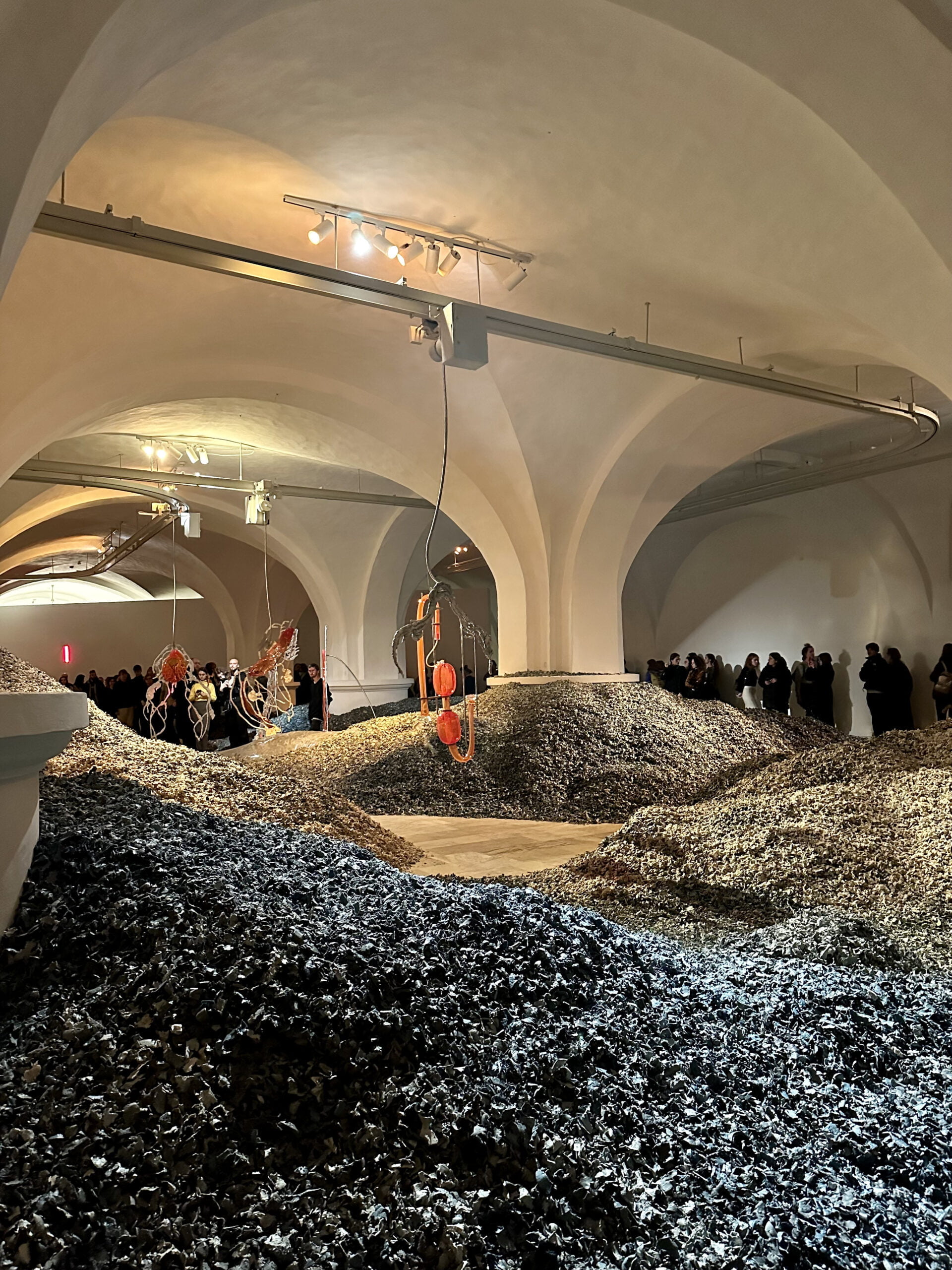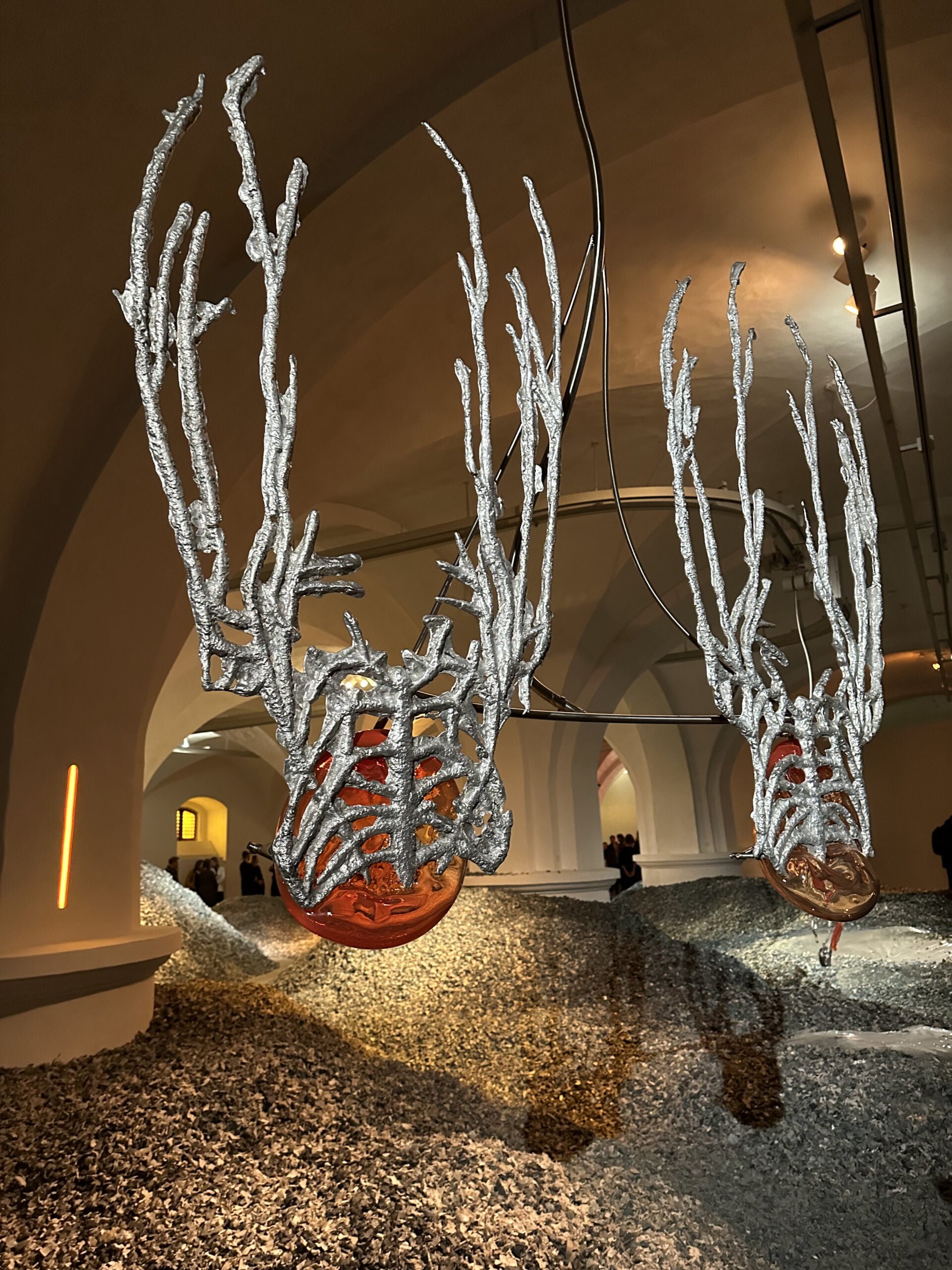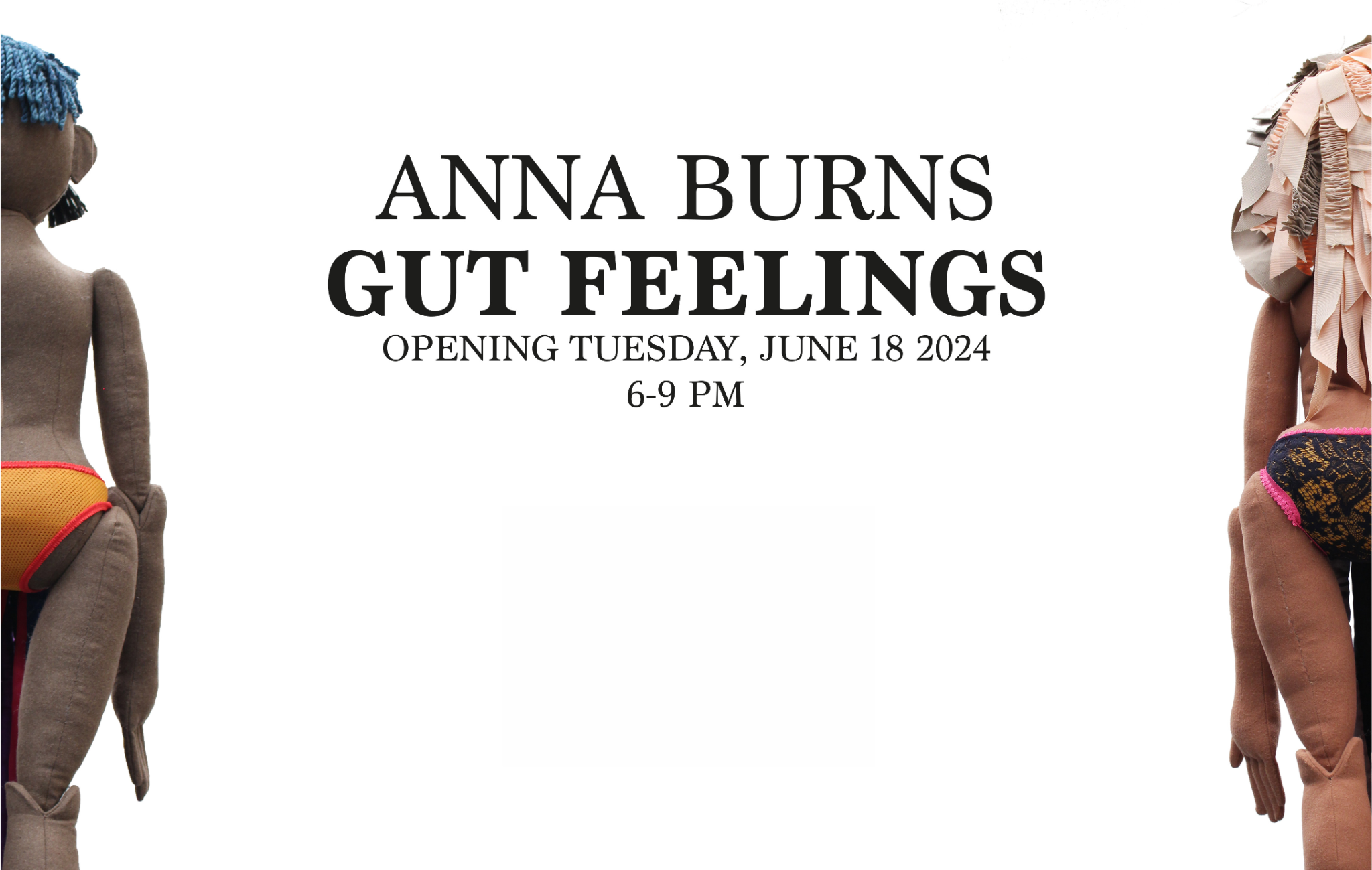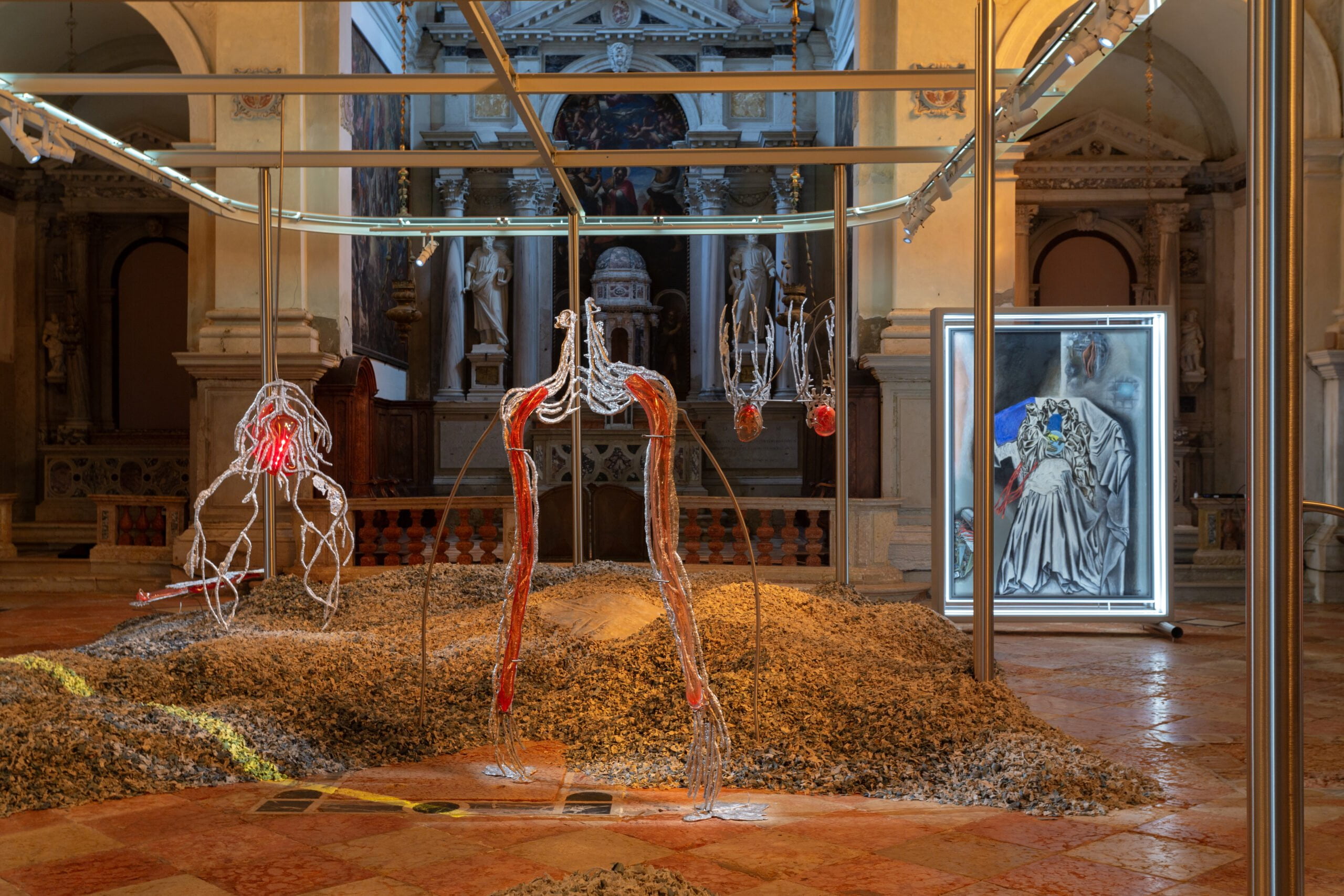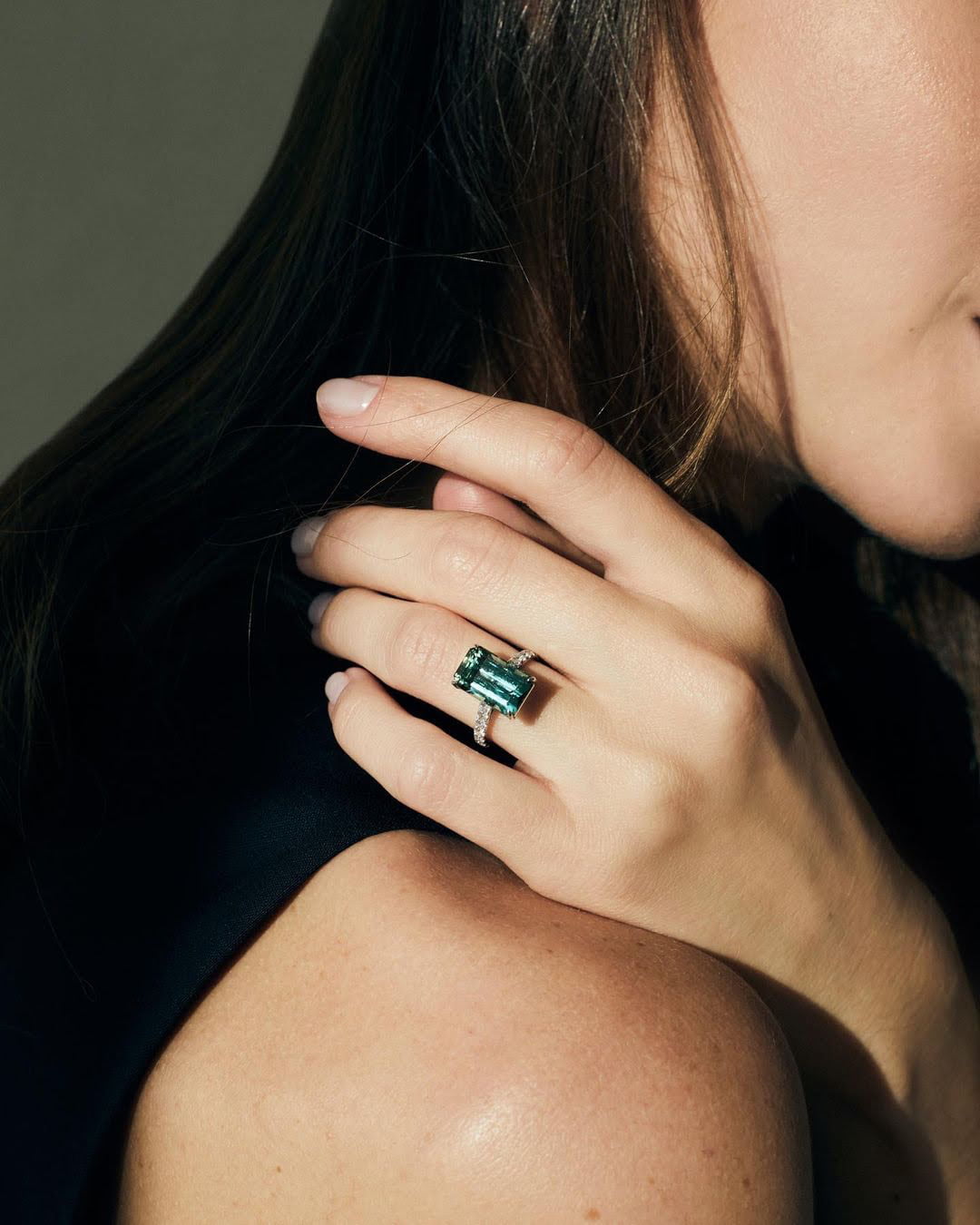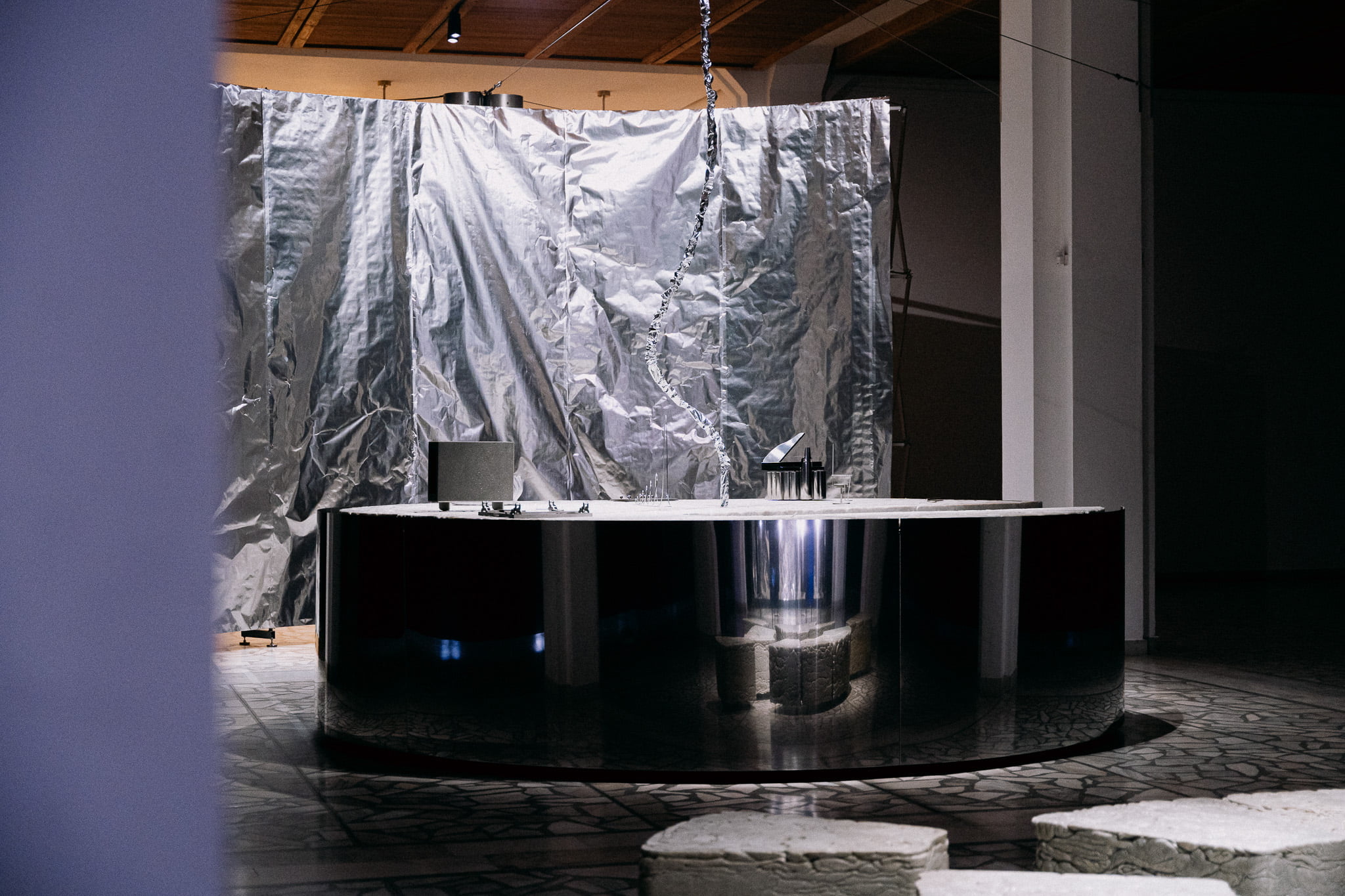PAKUI HARDWARE: INFLAMMATION – A GLOBAL HUMANITY PROBLEM
Pakui Hardware: Inflammation – A Global Humanity Problem
Civilization, economic and social systems pass on chronic ailments from generation to generation, while humanity destroys itself. This is the theme explored in the exhibition by the creative duo “Pakui Hardware,” composed of Neringa Černiauskaitė and Ugnius Gelguda, serving as an introduction to Lithuania’s upcoming presentation at the Venice Biennale. “Inflammation” is presented as a collection of meaningful references directing the viewer’s gaze to the human relationship with oneself, the world, and the surrounding environment.
The Contrast of Integrity
The exhibition depicts the contrast between seamless integrity and constant fragmentation. “Hardware,” translated from English, means electronic or mechanical equipment, interconnected components performing analog or logical operations. Pakui is a mythical Hawaiian runner being characterized by incredible speed. The foundation of Pakui Hardware’s creation lies in oppositions: between the physical human body and technology. Both hardware and humans malfunction if the supporting system is damaged. Why do we form it from small elements, extracts of the whole?
If we do not want to be sick, we must heal chronic pains. Inflammation signals disease, and disease is the first step towards oblivion. Temperature rises, and not only our bodies but also the planet’s body “burns.” We live in an era affected by pandemics and wars. By polluting ourselves and the world, we will lose what is human, spiritual, and bright, and find ourselves on the edge of an abyss. One can talk about it, express it without words, or do nothing at all, for in silence and stepping aside, there are more opportunities to appear wise.
Thinking About Generational Inflammations
“This exhibition is a continuation of our previous projects, a critique of Western medicine for fragmenting the human body. We are all treated in parts, without seeking the causes of disease, disconnected from the broader context. Where did this come from?” says Neringa Černiauskaitė about the unusual modern art spectacle. She explains that the main inspiration and creative starting point of the exhibition became Marya Rupa and Raj Patel’s book “Inflamed: Deep Medicine and the Anatomy of Injustice,” which uses the concept of inflammation metaphorically to discuss systemic harm done to both humanity and the planet. According to the authors, inflammation is a normal body response to toxic conditions, so we should first “treat” not individual sick organs but the systems themselves—economic or social—that pass on chronic ailments from generation to generation. The echoes of the war in Ukraine, felt so close to us, also significantly impacted the creators. “It is important to think about the inflammations of the entire generation, why we do not seek their causes, our interconnectedness with the environment, with visible and invisible elements. We wanted to provoke the audience’s sensitivity through all senses—from smell, light, movements, and visuals. We try to immerse in a specific state, to experience inflammation and fever as a sign, prompting attention to oneself, provoking thoughts on why this happened…,” says the author.
Lost in a Fragmentary Collection of References
The creators lead us through the plastic dunes grown over time, showing a limited understanding of what is familiar and foreign. Ugnius Gelguda did not hide that discussions with the exhibition architects led to the idea of creating a plastic landscape. AB “Plasta” offered to use plastic unsuitable for recycling due to organic mixtures. Unfit, polluting material in installations, art, and design objects.
The question is raised: does a balance still exist between naturally developed objects in nature and those created by humans? Human activities significantly impact all natural processes. Wearing synthetic clothes and buying greenhouse-grown fruits, we replace true feelings with artificially induced emotions and stand on a meaningless, paved, and often unswept life path, looking at a synthetic landscape. The artificial mismatch of words and actions shakes the foundations of creation. The foundation of Pakui Hardware’s creation lies in oppositions: between mythology and modern science, between the past and the future, between the physical human body and virtual technologies. Feeling the pressure of the environment, we often no longer understand who we are, where we are going, whether the progress of science and technology makes us happy, or perhaps it is worth looking for the escaped Haitian god Pakui? The creative duo’s exhibition, through modern expressions of sound, visual, and scents, directs the viewer’s gaze to the human relationship with oneself, the surrounding environment, and a worldview of “extracts” rather than wholeness, which manifests even in treating people. Self-regulation mechanisms are sought, but they are lost in the fragmentary collection of references, questioning modern medicine, where wholeness is lost, and humans are treated in parts.
NEWS
Lithuanian Pavilion Opens at the Venice Contemporary Art Biennale
On Friday, April 19, the Lithuanian National Museum of Art (LNMA) is inaugurating the Lithuanian National Pavilion at the 60th Venice Contemporary Art Biennale. The exhibition titled "Inflammation," by the internationally acclaimed artist duo Neringa Černiauskaitė and Ugnius Gelguda, known as "Pakui Hardware," along with renowned painter Marija Teresė Rožanskaitė (1933–2007), will be presented to a global audience.
Success Strategy: 100% Sincerity
Giedrimas Tumėnas, a lover of gemstones and jewelry and founder of the brand "Août," has dedicated his life to this industry and amassed extensive knowledge about precious stones. From his early career selling silver jewelry in small Lithuanian towns to working with the world's rarest investment diamonds and gems, and selling them to the world's elite at leading jewelry houses such as Tiffany & Co., Chopard, Graff, and Moussaieff, his journey is remarkable.
Copenhagen Fashion Week 2024
Copenhagen is renowned as a leader in sustainable fashion, and its fashion week consistently incorporates themes of sustainability and responsible design. Designers frequently emphasize not only style but also the environmental impact of the production process and the sources of the materials used. For the third consecutive season, all participating brands are required to adhere to 18 minimum responsibility standards, including avoiding single-use plastics and ensuring that at least 50% of their collections are made from certified recycled or repurposed materials.
PAKUI HARDWARE: INFLAMMATION – A GLOBAL HUMANITY PROBLEM
Civilization, economic and social systems pass on chronic ailments from generation to generation, while humanity destroys itself. This is the theme explored in the exhibition by the creative duo "Pakui Hardware," composed of Neringa Černiauskaitė and Ugnius Gelguda, serving as an introduction to Lithuania's upcoming presentation at the Venice Biennale.









